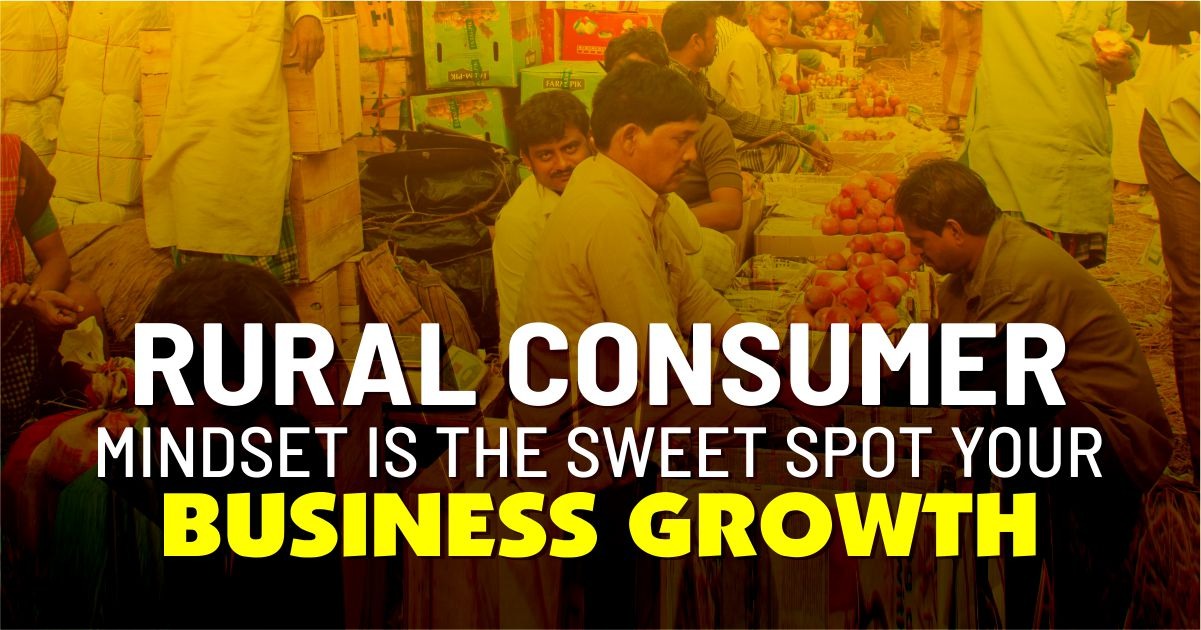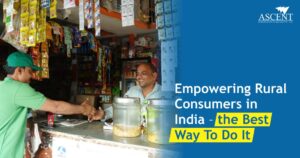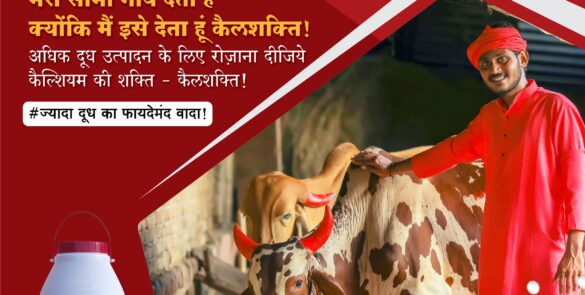Consumers in India now significantly impact income development, consumption aspirations, and changes in positive attitudes and social status across the income spectrum, particularly in rural India. Because rural India has been consuming everything from detergent to automobiles in recent years, the buying habits of rural consumers have been a hot topic of debate, and this “rural consumer mindset” is a key topic of market research and business growth.
WHAT IS A RURAL CONSUMER MINDSET?

Rural Consumer Mindset is a mental attitude, or you can say a cognitive process that determines how rural consumers will interpret the products or services. It is directly involved in the decision-making process, influencing the purchasing behavior.
The consumer mindset is the most common starting point for purchases in all business areas. It operates by using its senses to view, touch, and taste its way towards purchasing decisions on various things.
UNDERSTANDING RURAL CONSUMER MINDSET IS DIFFICULT

According to marketing professionals, the most challenging task for marketers is understanding rural customers’ mindsets and exposing them to the right items at the right time.
Companies have enormous pressure to manage top and bottom lines as they invest large sums of money in managing the rural market’s considerable variability. It is self-evident that businesses that did not invest enough time and effort into learning about the rural market suffered greatly. Companies and rural marketing agencies in India that understood the goals, requirements, and interests of rural consumers, on the other hand, fared quite well with their innovative rural marketing ideas.
WHY IS IT SO IMPORTANT TO UNDERSTAND THE INDIAN RURAL CUSTOMER MINDSET?
For a long time, rural markets were thought to be a sellers’ market, with no need to tell customers about the advantages or unique selling propositions. They value a product or service when they are aware of the specific benefits of purchasing it from their point of view. Rural people purchasing decisions were earlier influenced by only two significant factors: people and ideals.
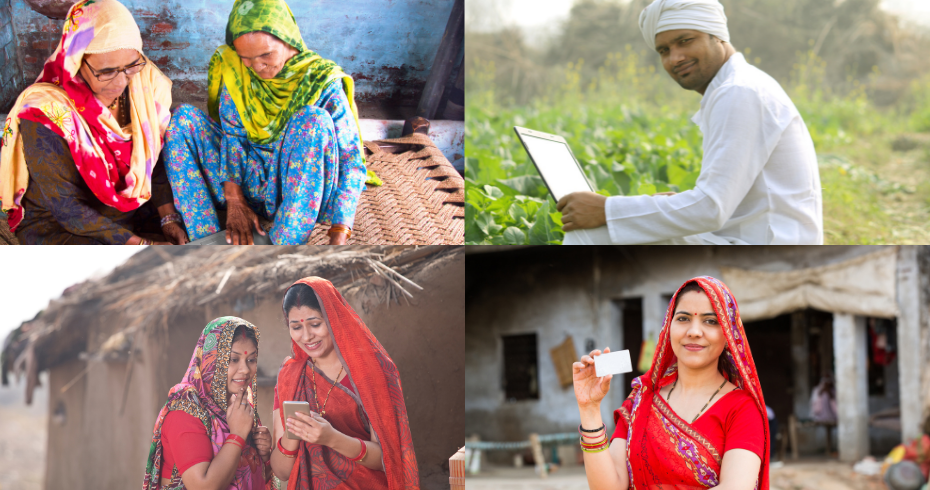
Today’s situation is very different. It’s critical to know what makes rural Indians tick, what inspires them, and what factors impact their purchase decisions to contact and engage with them effectively. Prioritizing education is helping them become more involved in their communities’ economic and cultural growth. This results in long-term rural development, increased quality of life, and personal growth. Rural people are prospering with the knowledge and power of education.
According to The Economic Times article of IAMAI-Kantar ICUBE 2020 report, In rural India, 58% of active Internet users are men, and 42% are women. By 2025, there will be more internet users in rural India than in urban India. This indicates that rural people are coming to use their knowledge and awareness to make decisions.
Also, due to the effect of electronic media and increased knowledge of consumer rights, taking care of rural customers’ ambitions and emotions has become an unavoidable corporate approach, a paradigm change in itself.
Hence, using a strategic marketing research process, companies and rural marketing agencies must develop a specialized strategy for the rural markets and learn about other purchasing concerns. Identifying these motivators and using them in your rural marketing strategies, message, and creativity can help you advertise to rural areas.
WHAT SHOULD BE YOUR APPROACH?
GRASP THE HABITS OF RURAL CONSUMERS
Marketers are attracted to the Indian rural market because of its large size and high demand. Rural areas are home to two-thirds of the country’s consumers, and they contribute nearly half of the country’s revenue. Our country is divided into over 640000 villages, categorized by literacy, income, penetration, and distance. To establish themselves in the rural market in this competitive industry, businesses must first grasp the habits and roles of rural consumers.

Rural consumers are fundamentally different from their urban counterparts. Different rural geographies exhibit significant heterogeneity, necessitating a rural-specific and region-specific analysis of consumer behavior to fully comprehend rural consumers and determine to what extent rural consumers enjoy consumer welfare.
RURAL CONSUMER INSIGHT APPROACH IN RURAL RETAIL
Rural market research or rural customer insights is one of the most talked-about strategies in the rural retail industry. This customer-centric strategy seeks to understand the customer’s point of view to develop or fine-tune a product and package that reflects that mindset.
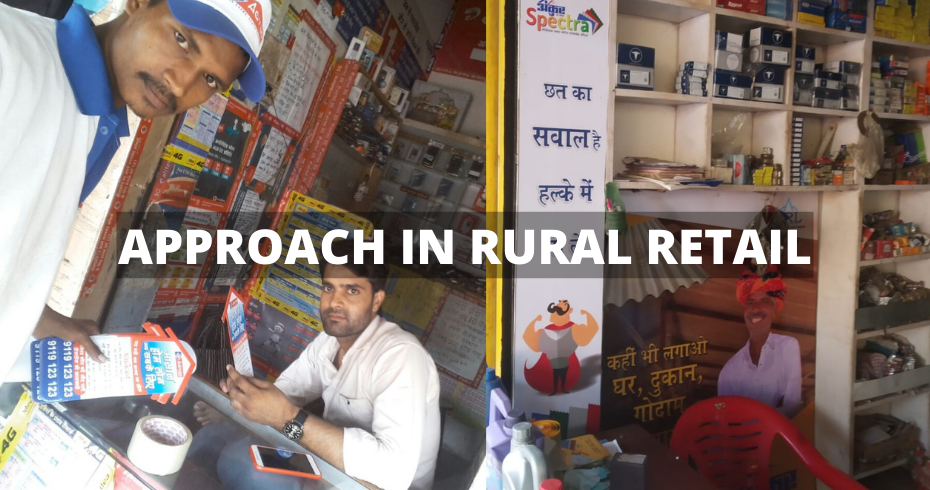
Brands segment like-minded or related demographics and boost marketing efforts to provide the market with a cause to believe in the product offering—a consumer insight approach analyses these groups’ purchasing behaviors and converts them into increased sales. With ethnographic studies that follow and observe people at home or in life, brands delve deeper into the lives of their rural customers. The quest for more in-depth consumer insights and cognitive drivers opens up new rural retail prospects.
COMMUNICATION STRATEGY
Rural consumers necessitate a completely different communication strategy. It is well-known among business owners and rural marketing companies in India. Marketers and businesses must access data on rural consumers, purchasing habits, and preferred distribution methods. They can recognize that consumer behavior influences the expansion of marketing communication strategy by thoroughly analyzing specific consumer behavior models such as various variables influencing the decision process, alternative evaluation, observational response, and consumer’s repetitive purchasing.
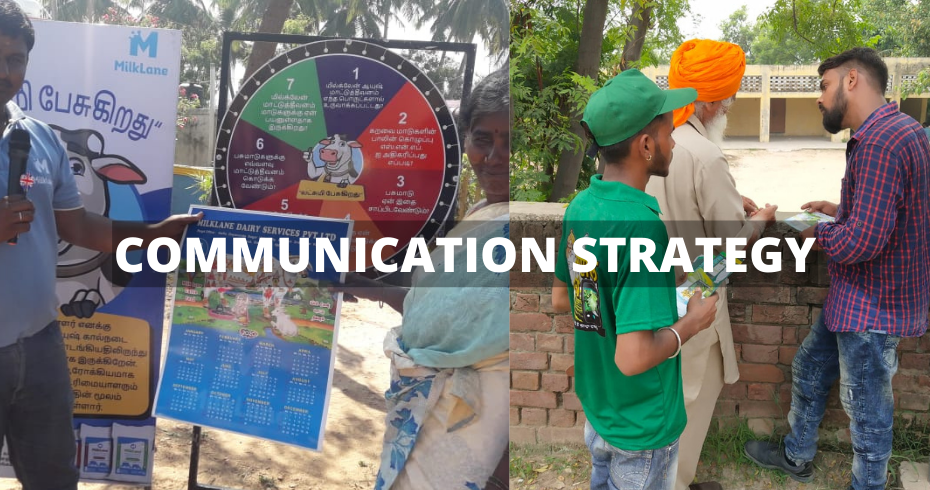
Using this method, they can estimate the data needed to classify and select target markets. These models also aid in the creation of one-of-a-kind marketing tactics such as positioning and market segmentation, which divides the whole market into subgroups.
CONCLUSION
Rural consumers are generally more upbeat, hopeful, and satisfied. Thanks to improved roads and electrification, physical access, which was previously a barrier, is no longer an issue. This, combined with growing knowledge and income levels, creates a market opportunity that is just waiting for your company. Hence, instead of being the same as everyone else, differentiate yourself by understanding the rural consumer mindset.
Written by – Kirti

